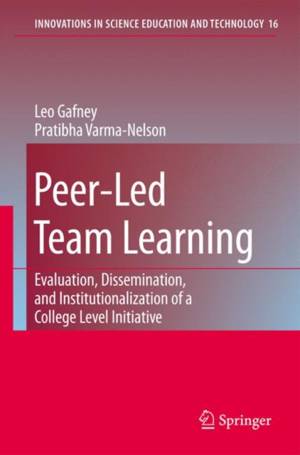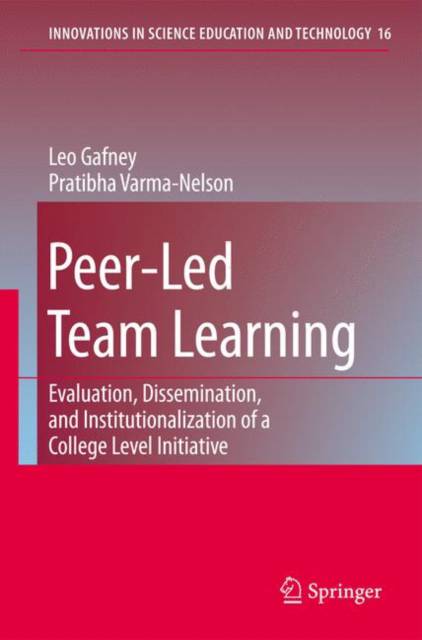
- Retrait gratuit dans votre magasin Club
- 7.000.000 titres dans notre catalogue
- Payer en toute sécurité
- Toujours un magasin près de chez vous
- Retrait gratuit dans votre magasin Club
- 7.000.0000 titres dans notre catalogue
- Payer en toute sécurité
- Toujours un magasin près de chez vous
Peer-Led Team Learning: Evaluation, Dissemination, and Institutionalization of a College Level Initiative
Leo Gafney, Pratibha Varma-Nelson
153,95 €
+ 307 points
Description
There seems to be no end to the flood of conferences, workshops, panel discussions, reports and research studies calling for change in the introductory science courses in our colleges and universities. But, there comes a time to move from criticism to action. In 1993, the Division of Undergraduate Education of the National Science Foundation called for proposals for systemic initiatives to change the way int- ductory chemistry is taught. One of the five awards was to design, develop and implement the peer-led Workshop, a new structure to help students learn science. This book is a study of 15 years of work by the Peer-Led Team Learning (PLTL) project, a national consortium of faculty, learning specialists and students. The authors have been in the thick of the action as project evaluator (Gafney) and co-principle investigator (Varma-Nelson). Readers of this book will find a story of successful change in educational practice, a story that continues today as new institutions, faculty, and disciplines adopt the PLTL model. They will learn the model in theory and in practice and the supporting data that encourage others to adopt and adapt PLTL to new sit- tions. Although the project has long since lost count of the number of implem- tations of the model, conservative estimates are that more than 100 community and four year colleges and a range of universities have adopted the PLTL model to advance student learning for more than 20,000 students in a variety of STEM disciplines.
Spécifications
Parties prenantes
- Auteur(s) :
- Editeur:
Contenu
- Nombre de pages :
- 156
- Langue:
- Anglais
- Collection :
- Tome:
- n° 16
Caractéristiques
- EAN:
- 9781402061851
- Date de parution :
- 21-07-08
- Format:
- Livre relié
- Format numérique:
- Genaaid
- Dimensions :
- 156 mm x 234 mm
- Poids :
- 412 g

Les avis
Nous publions uniquement les avis qui respectent les conditions requises. Consultez nos conditions pour les avis.






